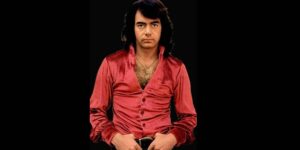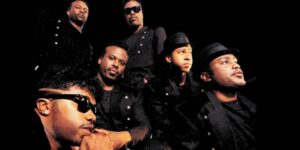The Art of Replication: An Interview with Dave Fowler of Australian Pink Floyd
In the Spotlight
As we delve into the world of tribute bands, it’s hard not to wonder what makes them tick. For Dave Fowler, lead guitarist of Australian Pink Floyd, it’s all about the music. For over three decades, he has been perfecting the art of replicating David Gilmour’s iconic solos and tone. In this exclusive interview, we sit down with Dave to discuss his journey, inspirations, and the secrets behind his remarkable work.
Early Beginnings
Dave’s love affair with music began at a young age. Growing up in London, he was surrounded by the sounds of his local pub scene. "Every weekend, I was either watching a band in a pub or playing in one," he recalls. As a teenager, Dave was heavily influenced by Hank Marvin and the Shadows, and his parents gifted him a Fender Stratocaster similar to Marvin’s iconic red guitar.
Finding Pink Floyd
Watching Pink Floyd on BBC1 at the age of 14 was a defining moment for Dave. The band’s unique sound and philosophical lyrics resonated deeply with him. As he began to delve deeper into their music, he became captivated by David Gilmour’s extraordinary guitar work.
The Replication Process
So, what’s the secret to covering David Gilmour’s parts from a technical perspective? For Dave, it’s all about repetition and refinement. "I don’t think there is any secret as such. It’s just playing it incessantly and listening back so you can refine it each time," he says. With over 30 years of experience under his belt, Dave has honed his skills to near perfection.
Guitar Selection
Dave’s guitar selection is a testament to his dedication to the craft. He uses a range of vintage Fenders, including his prized ’63 Stratocaster, which he reserves for live performances. In addition to his Fenders, Dave also employs a ’58 Stratocaster, a ’54 Les Paul Gold Top, and a ’59 Les Paul Junior.
Pedals and Amps
When it comes to pedals and amps, Dave’s collection is impressive. He uses Supro Thunderbolt amps and a variety of vintage fuzz pedals, including some rare finds from Pete Cornish. "I love having the real thing," he says, referring to his vintage gear.
Understanding the Role
As a tribute band member, Dave is acutely aware of his role. "If anyone who sees the show gets to know me as a musician, then I have failed," he emphasizes. "People are there to hear David Gilmour being replicated, not my take on it." Despite this, Dave is passionate about creating soundscapes and making sounds fit within a mix. "It’s all about the big picture, and the individual is somewhat insignificant," he concludes.
Pink Floyd’s Legacy
So, what does Pink Floyd and David Gilmour mean to Dave? "Pink Floyd is like a continual lesson on how to have musical class, create space, and push boundaries," he says. "David Gilmour can make you weep with one note, while others would play ten."
Conclusion
Dave Fowler’s dedication to his craft is a testament to the power of passion and hard work. As we continue to marvel at his incredible guitar work, it’s clear that his love for Pink Floyd and David Gilmour will never fade.
FAQs
Q: What inspired you to become a musician?
A: As a kid, I was into computers and playing guitar. As I became a teenager, I realized that girls were more interested in me playing guitar than programmed computers, so the choice was obvious.
Q: What keeps you inspired?
A: Music is like an addiction, though, and for me, the repetition and refinement are what keep it exciting.
Q: What’s one thing about you as a musician that you want people to know and understand?
A: That’s the thing about being in a tribute band: "If anyone who sees the show gets to know me as a musician, then I have failed. People are there to hear David Gilmour being replicated, not my take on it."







Muchas gracias. ?Como puedo iniciar sesion?